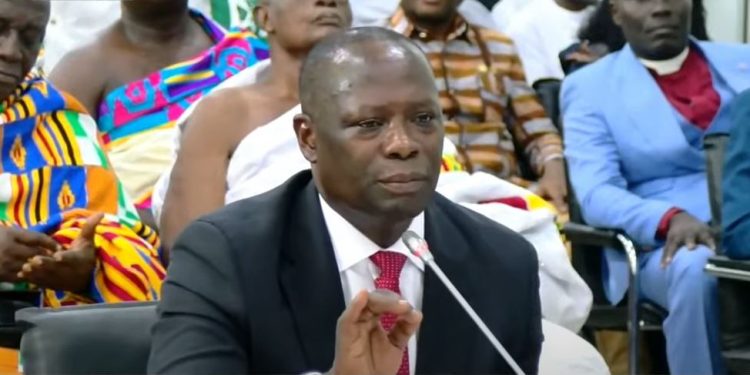
Emmanuel Armah-Kofi Buah, the Minister-Designate for Lands and Natural Resources, has firmly opposed the sale of public lands, emphasising that any future transactions involving such lands must be conducted at prevailing market rates to protect the interests of the Ghanaian people.
During his vetting by Parliament’s Appointments Committee on Monday, January 27, Armah-Kofi Buah criticised existing practices that allow public lands to be undervalued and sold at significantly lower rates, describing this as detrimental to national development.
Armah-Kofi Buah outlined the guidelines currently in use by the Lands Commission, explaining that public lands are often sold at just 25 percent of their market value, with the remainder paid through ground rent.
This practice, Armah-Kofi Buah argued, effectively undervalues state-owned assets and deprives the nation of much-needed revenue.
“As we speak, the guidelines for the sale of public lands according to the Lands Commission is that it is valued at 25 percent and the 25 percent of the value is what is sold and the rest is paid through grand rent.
“That will not happen anymore, and first of all, it should not be sold and if there is a need to sell, it should be done at the current market value so that Ghanaians are not shortchanged.”
The sale of public lands to Politically Exposed Persons (PEPs) has been a contentious issue in Ghana, with concerns raised about transparency, fairness, and accountability.
Over the years, there have been reports of influential individuals, including politicians, government officials, and their associates, acquiring prime public lands at heavily discounted prices.
Critics argue that these transactions often lack transparency, with limited public oversight or competitive bidding processes.
In some cases, prime lands located in urban centres have been sold to PEPs at prices far below their market value, depriving the state of significant revenue and raising questions about favouritism and abuse of office.




